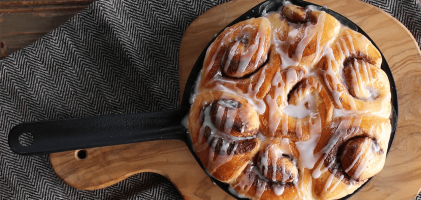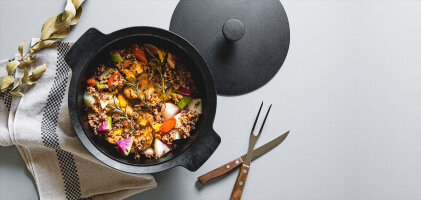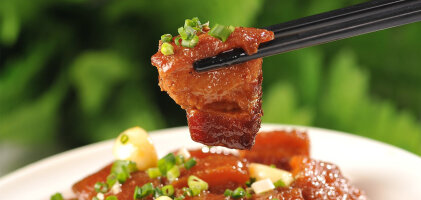Maintain cast iron pan and use it forever
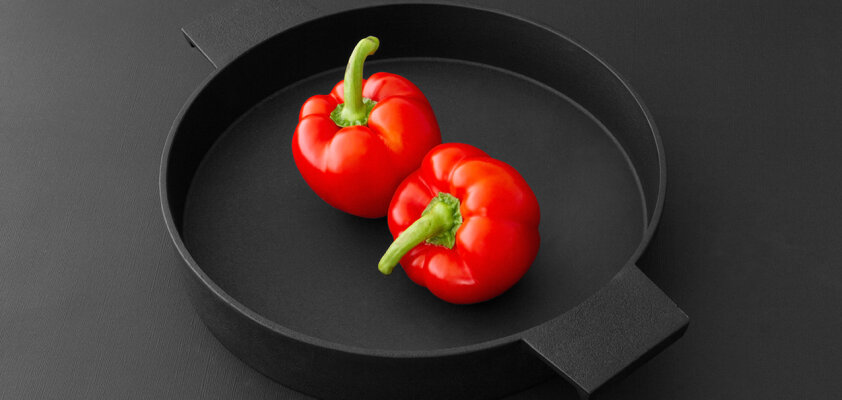
Inhaltsverzeichnis
Contents of the instructions for the care of cast iron pans The prerequisite for easy cleaning and care of your cast iron pan The dishwasher, washing-up liquid and scouring pads are not required Direct cleaning of the cast iron pan after use Excellent taste for food and cooking Why quality pays off with cast iron pans?High-quality cast iron has excellent properties and is perfect for preparing delicious and healthy food. Cleaning and caring for a cast iron skillet is simple. Here's what you need to do to ensure your cast iron skillet lasts a long time.
Contents of the instructions for the care of cast iron pans
The prerequisite for easy cleaning and care of your cast iron pan
Before using a cast iron skillet for cooking and frying, it needs to be properly seasoned. You can find a guide on how to do this very effectively here: Guide to seasoning a cast iron skillet
The dishwasher, washing-up liquid and scouring pads are not required
Your cast iron skillet does not require intensive cleaning with detergent or a scouring pad. Doing so would remove the protective layer of the pan and make it more susceptible to rust. If your skillet has been cleaned with the above-mentioned methods, you can restore the protective layer through seasoning. A well-seasoned cast iron skillet has a certain non-stick property and is usually easy to clean after cooking.
Direct cleaning of the cast iron pan after use
The following tips apply to all types of cast iron skillets and pots. Even a frying pan or grill pan is easy to clean if it has been properly seasoned. Clean your skillet or cast iron pot thoroughly with warm water and a natural fiber brush (e.g., palm fibers) immediately after use, and wipe the cast iron with a soft cloth. Using ice-cold water on hot cast iron may cause the iron to warp, so lukewarm water is ideal. Even after long periods of cooking, high-quality pans are easy to clean. Many Japanese cast iron pans have a particularly fine surface, so water and a soft sponge are often sufficient for cleaning. After drying by heating, once all the water has evaporated, rub some oil onto the surface and store the pan in a dry place.

Quick Tip: If possible, store your pan at ground level to reduce the risk of injury from falling cast iron pans. If you won't be using your cast iron pans for several months, it's recommended to wrap them in newspaper during this period. This will provide additional protection against moisture and rust.
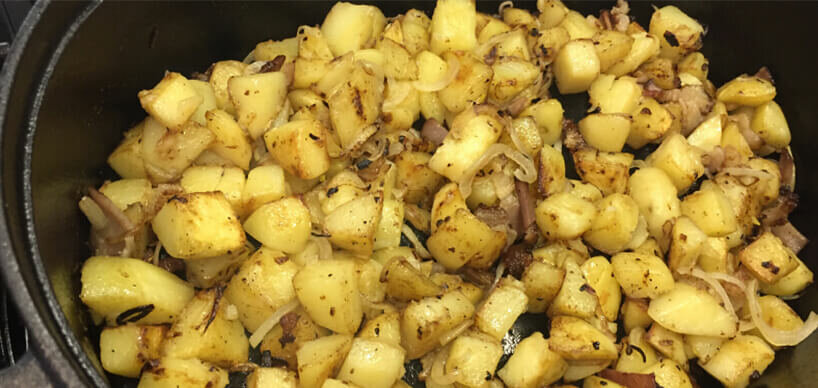
Roast potatoes in a cast iron pot or cast iron pan
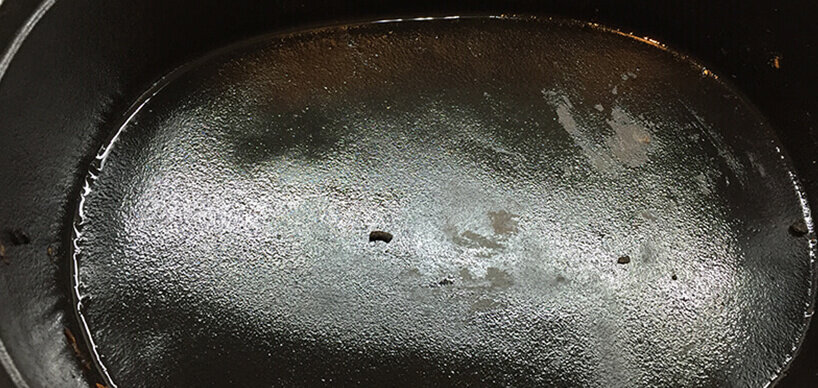
Empty cast iron pot before cleaning
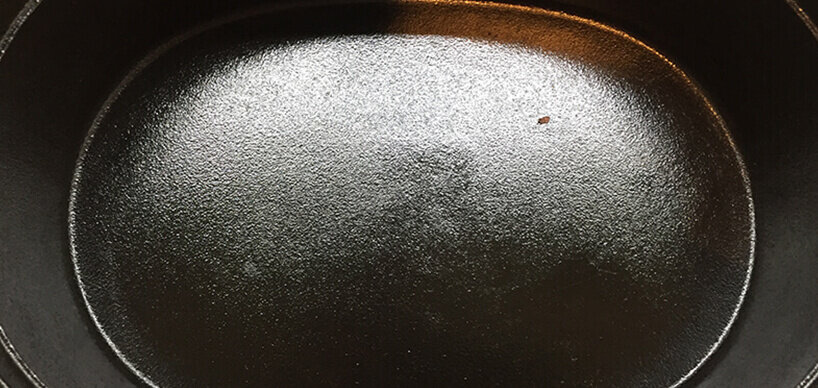
Cast iron pot after cleaning with a palm fiber brush and a damp soft cloth
Excellent taste for food and cooking
The taste of prepared recipes remains in cast iron cookware. Thanks to its excellent heat conductivity, you can also keep your dishes warm in the pan after cooking. However, cast iron pans and pots should not be used for storing food.
Exposure to moisture or acid can cause iron to rust. While rust is harmless and can be removed with household remedies, it's essential to re-season the cast iron pan afterward to rebuild the patina on the surface. You can find instructions on how to remove rust from your pan here.
The OIGEN manufacturer has developed a patented process called Naked Finish to protect the pan from rust naturally. You can recognize pans with Naked Finish in our shop by their gray color.
Why quality pays off with cast iron pans?
By the way, it's not just about rust protection when it comes to investing in quality cast iron pans. The healthy preparation and durability of the product also depend significantly on its manufacturing process. Make sure to inquire about the product you choose to ensure that a sophisticated cast iron alloy suitable for food production was indeed used in its manufacturing. Inexpensive products often contain cast iron contaminated with heavy metals due to the use of scrap iron.

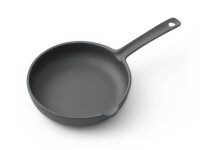
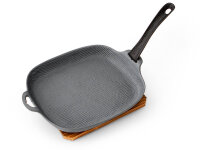
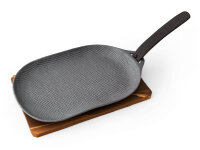
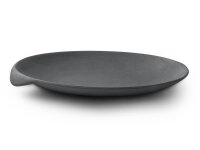
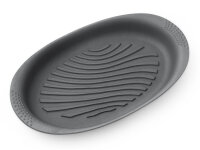
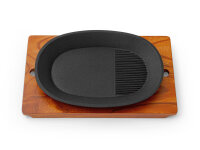
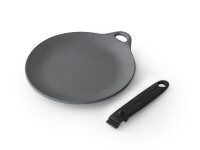
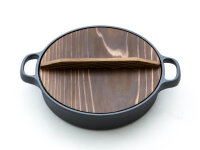
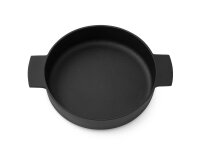
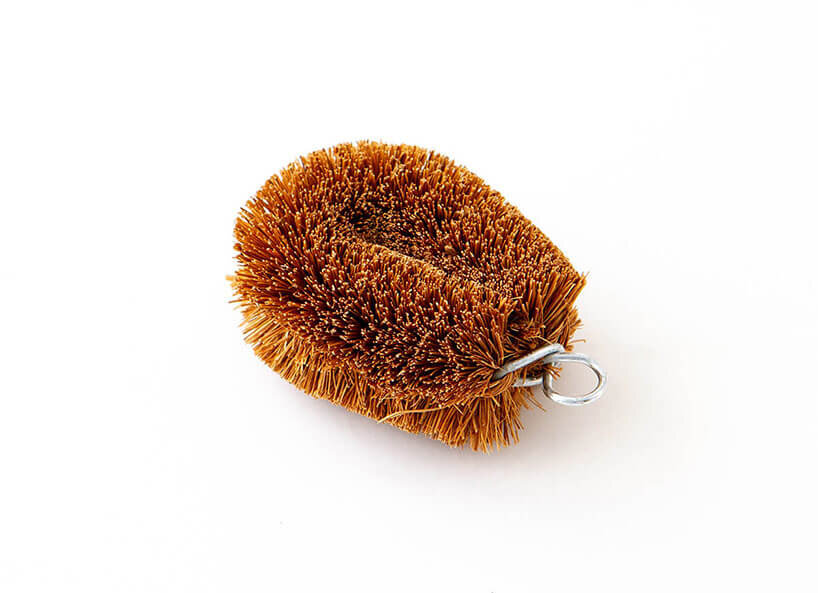
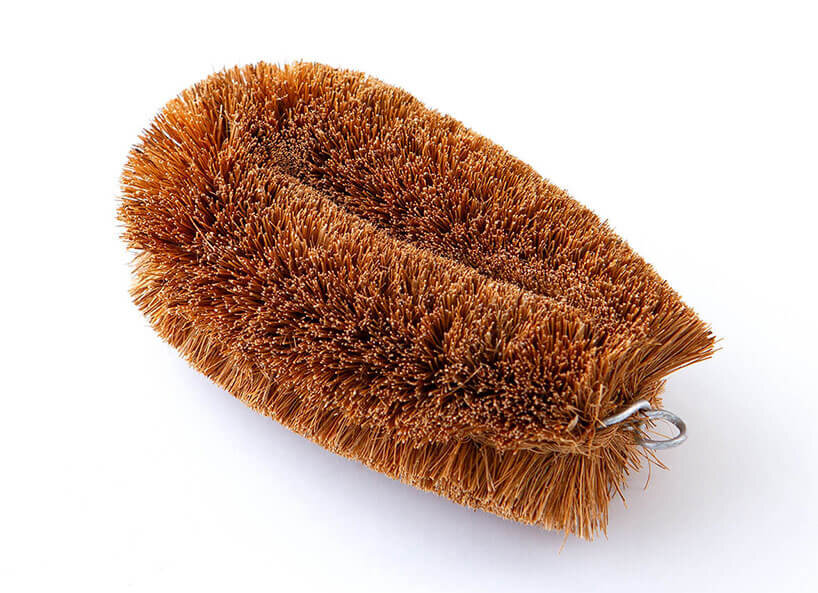


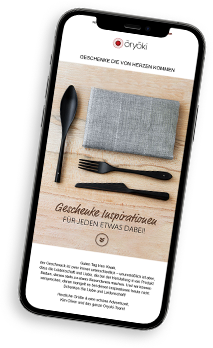


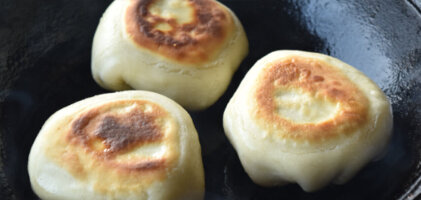
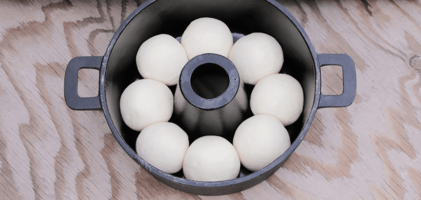

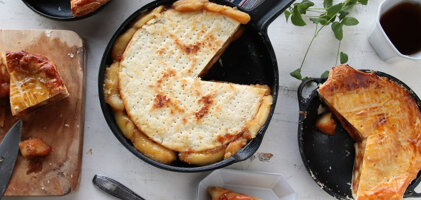
-from-the-yakiyaki-grill-pan.jpg)
